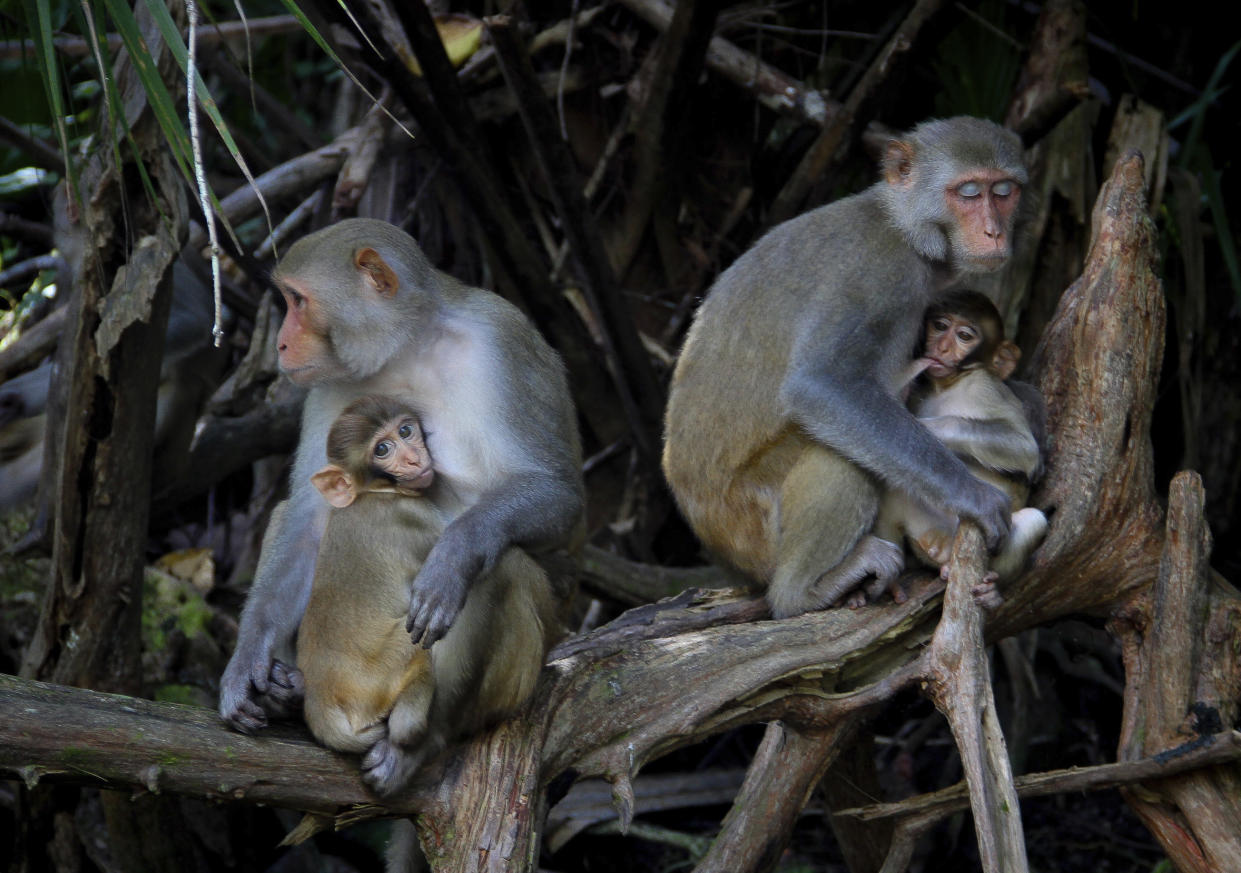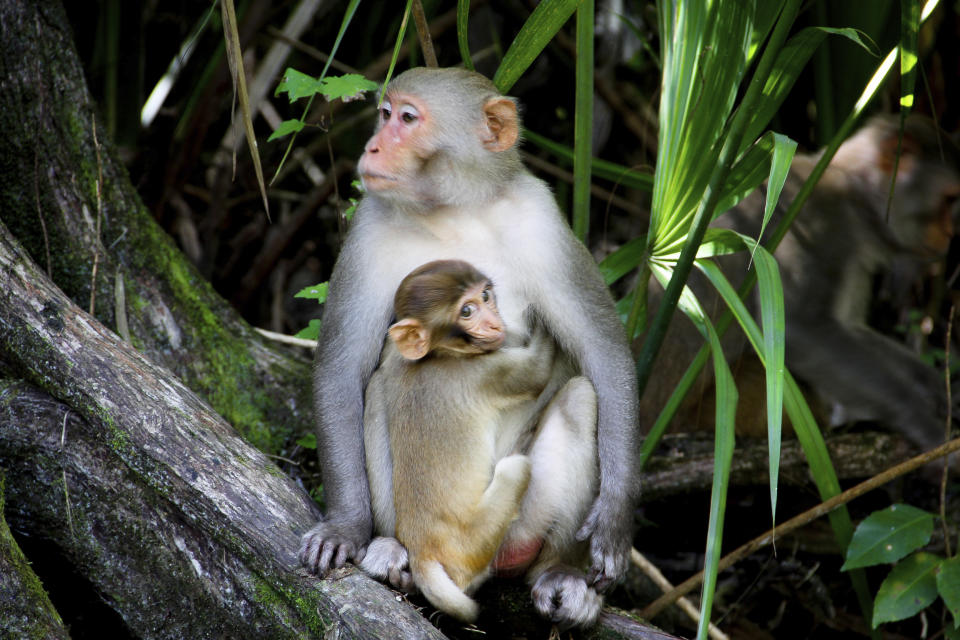Number of monkeys with strain of herpes deadly to humans set to double in Florida

The number of wild monkeys with a strain of herpes deadly to humans is set to double, warn researchers.
A troop of Macaques have been in the Florida area since 1930, when they were brought in to be a main attraction in the Silver Springs Park.
The monkeys were originally housed on a small island in the park, though they did not stay there.
Many of the monkeys now carry a herpes virus which is deadly to humans. The McHV-1 strain can be spread through a bite or scratch from an infected monkey.
Researchers from the University of Florida now warn the population could double, leading the animals closer to residential areas.
“People should never approach these animals,” said University of Florida professor Steve Johnson, who was part of a team that spent years studying the monkeys. “People shouldn’t feed them. It’s not legal to feed them anymore.”

“By the year 2022, there are probably going to be around 400 animals,” Johnson said.
Johnson says that if the problem persists, local authorities will be forced to step in.
He added: “Remove the animals from the environment … [or] remove the animals, sterilize the females and put them back,” said Johnson, admitting the second option could be expensive and dangerous for those who have to capture the monkeys — and, in the end, may not make much of a difference.”
Although the infected macaques are yet to cause human deaths, Johnson warned they pose a threat.
He said: “It’s going to be a problem … Continual growth of that population is going to occur without intervention.”

 Yahoo News
Yahoo News 
